Bachelor of Science in BiologySchool of Arts and Sciences
The science behind the living world
You’ve always been curious about what’s behind life in the world. As a Bachelor of Science in Biology major you will uncover a world and discover what it looks like and how it is shaped both by science and technology. Your degree will provide you with the flexibility to pursue a career in medicine, health sciences, research, ecology, veterinary science, or agriculture.
Edgewood’s Biological Sciences Department boasts two state-of-the-art locations on campus, providing laboratory classroom space conducive to hands-on learning. Research space, labs, and classrooms are also located on the shore of Lake Wingra, providing easy access to research opportunities that include watershed implications and environmental factors that impact the lake.
The curriculum provides an overview of the evolution and structure of biological systems within ecosystems and genetics. Students take electives in organismal biology, ecology and evolution, and cell and molecular biology, depending on their interest and career path.
Edgewood’s biology faculty are engaged mentors, trainers, and educators who strive to develop close relationships with students. If you need research experience to obtain a job or enter medical school, our faculty mentor individual research projects so that students gain the experience graduate schools and employers expect. Students enroll in a specific course designed to learn experimental design and data analysis, complete their major capstone research project, and present their research project.
Madison, WI
On-campus
120
August 25, 2025
Careers within Biology
$85,470
Average annual salary for a Microbiologist
A bachelor’s degree in Biology prepares you for a variety of career paths. Those marked with an asterisk (*) require graduate-level degree.
- Bioinformatician
- Biologist
- Biology Teacher
- Clinical Laboratory Specialist
- Dentist*
- Ecologist
- Environmental Lawyer*
- Epidemiologist*
- Forester
- Genetics Counselor*
- Medical Doctor*
- Microbiologist
- Occupational Therapist*
- Perfusionist*
- Physician’s Assistant*
- Physical Therapist*
- Research Technician
- Veterinarian*
- Wildlife Biologist
Biology Student Spotlight

Hannah Clark ‘26
Bachelor of Science in Biology, Minor in Spanish
“Edgewood’s biology program has offered me a chance to work one on one with my professors. It’s exciting to be able to study something I love with faculty that share my same passions. Because of my exceptional undergraduate experience, I’m also considering one of Edgewood’s graduate programs.”
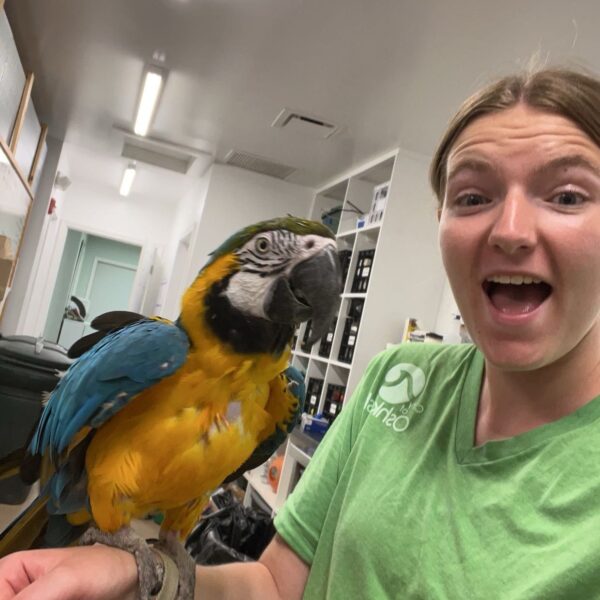
Reese Meszaros ’25
Bachelor of Science in Biology
“I chose to be a biology major because I am interested in working with animals, in the future, specifically big cats. Through the program I was able to complete a research project at the Henry Vilas Zoo observing animal behavior. Not only has the program offered interesting classes but it has also provided me with relevant career skills. Overall, it has been a great experience and I recommend this program for aspiring biologists!”

Emma Helmeid ‘26
Bachelor of Science in Biology, Minor in Chemistry and Minor in Nutrition
“At Edgewood University, I have encountered an enriching education and, most importantly, made close connections between my peers and faculty. Edgewood’s Biology department creates a supportive environment for personal growth and learning.”
Featured Courses
Biology 208 Introduction to Nutrition
Nutrients and their relationship to normal body function. Course Objective: To become knowledgeable consumers of nutrition information by being aware of the rapidly changing nature of nutritional science, and how you can responsibly evaluate and apply such information to your life. To be achieved by planning a nutritious diet, using the acquired basic understanding of good nutrition; discussing the major nutrition issues regarding the U.S. diet; listing the necessary changes in his/her diet to provide optimal nutrition; describing how nutrients are used in the body.
Biology 369 Biology Travel Courses
Biology travel courses offer students an opportunity to learn about exciting places far beyond Edgewood University. With both an on-campus classroom component and approximately two weeks of faculty-led travel abroad, students will get an in-depth, firsthand experience with the biology and culture of another part of the world. Current programs are offered in the Galápagos Islands and Costa Rica. Students will critically examine the global issue of human impacts on biological communities and explore the culture and history of the places they will visit.
Biology 402 Cell and Molecular Biology
Cell and Molecular Biology studies how life works at the molecular level. The course utilizes a comparative approach to the study of cell biology. Topics include molecular mechanisms of cellular regulation, the life cycle of a cell, and the dynamic role of protein structures in cellular function. Lab explores these topics in model organisms including bacteria, yeast and algae. The history of cell biology research is explored through the discussion of landmark discoveries and their influence on modern molecular biology. Students are expected to become proficient with light microscopy, and complement cellular observation with molecular techniques such as PCR and gel electrophoresis. An introduction to bioinformatics explores the relationship between protein structure and function.
Student Organizations
Achievement in Medicine
Achievement in Medicine (AIM) brings together students who are thinking of pursuing a degree in the medical/health field post-graduation. Guest speakers include doctors, physical therapists, physician assistants, dentists, pharmacists, and other individuals with other medical specialties have presented to members of AIM. Resources for MCAT/GRE as well as volunteer and shadow experiences are available through this organization.
Wood’s Edge
Wood’s Edge is an organization for students who are interested in the outdoors and caring for the environment. Participate in a variety of recreation and service activities such as:
- Hiking, camping, canoeing, and outdoor recreation
- Community service and education projects
- Invasive species management on campus
- Rearing garden seedlings
- Tending the campus garden
- Selling fresh healthy produce to our community
Woods Edge is a main sponsor of Edgewood’s annual Earth Week celebration, which includes many events revolving around the care and appreciation of our environment.
Biology Experiences
Every biology major conducts their own research project with a faculty member. Topics range from biomedical and biomolecular projects to ecological and organismal projects.
Students who study Biology at Edgewood explore the natural world within a variety of opportunities within the U.S. and abroad. Destinations to study include the Mississippi Delta, Florida Keys, Yellowstone National Park, and the canyon country of Utah and Colorado. Short-term, faculty-led abroad opportunities include the Galápagos Islands , Costa Rica, and Iceland.
Biology Faculty Spotlights
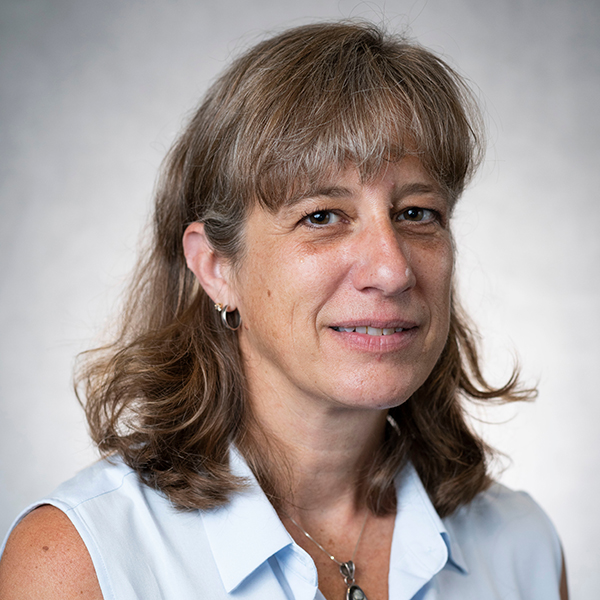
Nicole Kime
Professor
NKime@edgewood.edu

Pete Kuhn
Associate Professor
PKuhn@edgewood.edu

Jacob Griffin
Associate Professor
JacobGriffin@edgewood.edu

Tim Kuhman
Professor
TKuhman@edgewood.edu

Jessica Heckman
Lecturer
JHeckman@edgewood.edu

Diana Huepenbecker
Senior Lecturer
DHuepenbecker@edgewood.edu

Brenda del Moral
Professor
BdelMoral@edgewood.edu

Donika Rakacolli
Lecturer
DRakacolli@edgewood.edu

Deborah Sharp
Lecturer
DeborahSharp@edgewood.edu
Hands-On Research and Networking Experiences
Undergraduate Research Facilities
The Biological Sciences Division at Edgewood University offers multiple research labs that are dedicated to undergraduate research. Most of the state-of-the-art labs and classroom space is in the Sonderegger Science Center, providing space that facilitates experiential learning. Additional classrooms, labs, and research space, including a greenhouse, are in Mazzuchelli Center, on the shore of Lake Wingra. You’ll have access to unique opportunities to step out of the classroom and get involved in research and projects that can impact the lake, its watershed, and the surrounding Madison neighborhoods.
Networking Opportunities
Edgewood biology graduates have excellent success obtaining jobs at local companies such as Exact Sciences, Promega, WI Department of Natural Resources, University of Wisconsin, UW Health, Medical College of Wisconsin, and Covance. Biology graduates who meet the requirements for entry into graduate and professional medical schools have successfully entered their preferred programs with a competitive success rate. This can be attributed to faculty’s expert advising, close student-to-faculty relationships, faculty-mentored independent research projects, and local networking through the student organization AIM and internships.
3D Virtual Cadaver Anatomage Table
This educational tool provides pre-nursing students with a unique and immersive way to study anatomy while enhancing their understanding of the human body. Students interact with a digital cadaver to learn all levels of anatomy from the whole body to microanatomy and includes 3D investigations of normal and pathological case studies. With this unprecedented level of detail, the advanced technology of the Anatomage table allows students to visualize every aspect of the human body and makes it an innovative tool used to teach anatomy and pathology. The interactive and dynamic nature of the tool makes learning anatomy more hands-on, creating an engaging learning experience. An investment in the students’ educational experience, the 3D Anatomage Table serves to bridge theoretical knowledge with practical application, ultimately improving the overall educational outcomes and clinical preparedness of all students studying the health sciences.
Zebrafish Research Facility
The Biological Sciences Department engages students in research projects using molecular techniques such as qPCR, hormonal control of mating in anoles, invasive plant ecology, toxin and drug effects on learning and behavior in zebrafish, and more. A specific example of a student project was their investigation of the effects of a high-fat diet on exercise performance using a state-of-the-art swim tunnel in the zebrafish research facility.
Related Programs
-
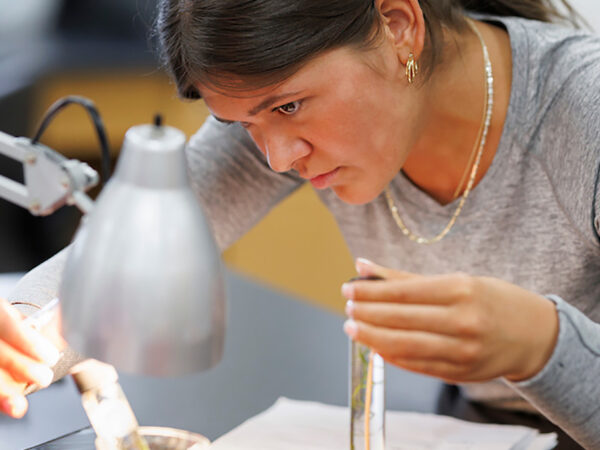
-
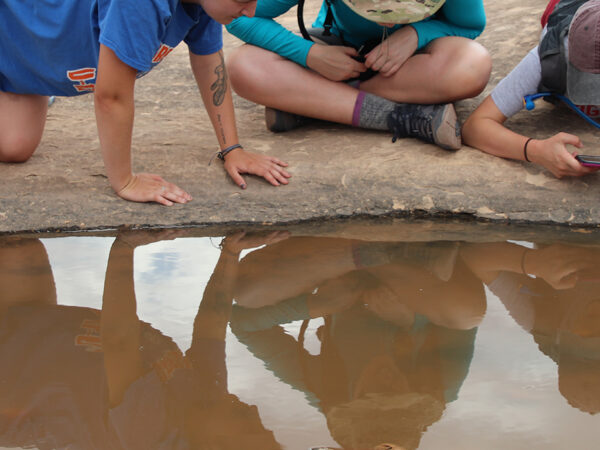
-
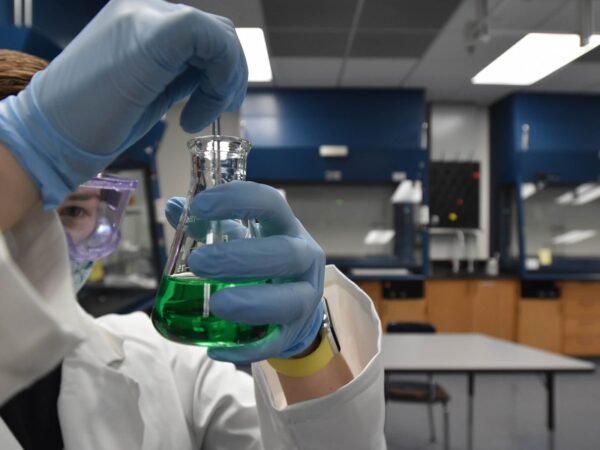
On-campus
Bachelor of Science in Chemistry
-
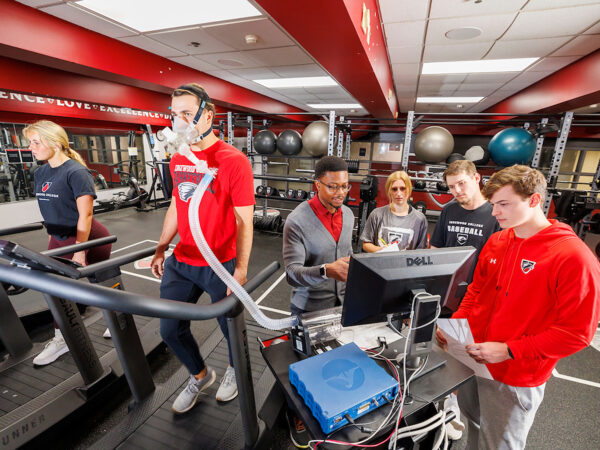
On-campus
Bachelor of Science in Exercise Science -
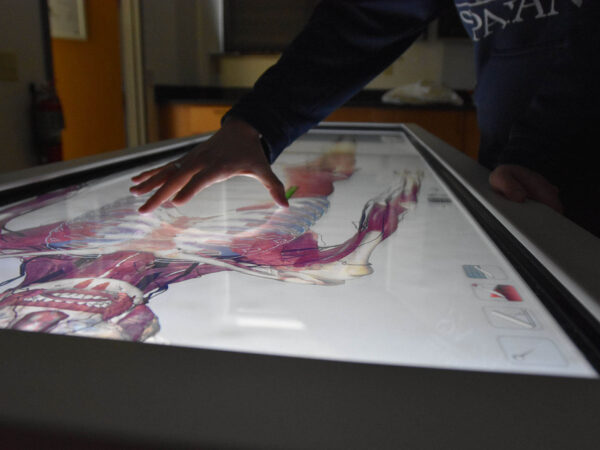
On-campus
Bachelor of Science in Health Sciences -
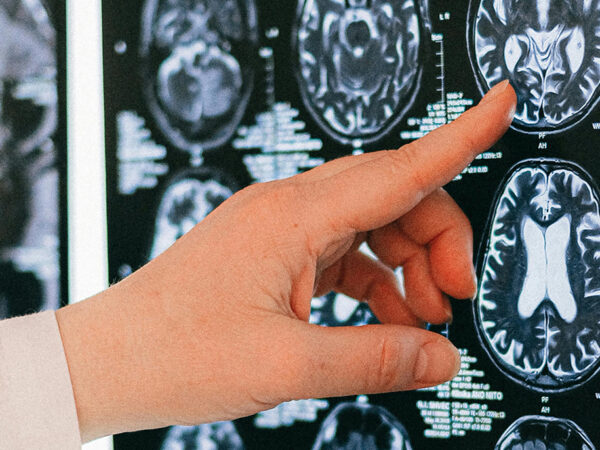
On-campus
Bachelor of Science in Neuroscience
Frequently Asked Questions
Can I specialize in a particular area or a pre-professional healthcare track with a biology major?
Absolutely! Biology is a preferred major for students seeking careers in medicine and preparing for graduate programs in the ecological or biomedical sciences. Faculty have created detailed handouts for students to start early in preparing for:
- Biomedical Sciences (MS and PhD program)
- Dental School (Pre-Dental)
- Ecology (MS and PhD program)
- Medical School (Pre-Med)
- Occupational Therapy (Pre-OT)
- Physician’s Assistant (PA) School
- Physical Therapy (Pre-PT)
- Veterinary School (Pre-Vet)
Explore the Pre-Health Professional Pathways Program at Edgewood University.
Please email Brenda del Moral for information specific to your interest(s).
What support services are available for biology majors?
Edgewood University offers excellent tutoring and writing services through the Learning Lab and Writing Center. In addition, Career Development Department helps students find and obtain internships and jobs by helping prepare resumes, providing mock interviews, and organized paid or volunteer internships through our Inclusive Internship program. There are generous funds for students to get paid for summer work in research through the Ebben Fund and opportunities for you to gain experience presenting your project in our Edgewood Engaged Symposium.
What are the minors that I can take?
Minors in nutrition, exercise science, environmental science, environmental studies, neuroscience, chemistry, and health and society complement students’ choice of a biology major.